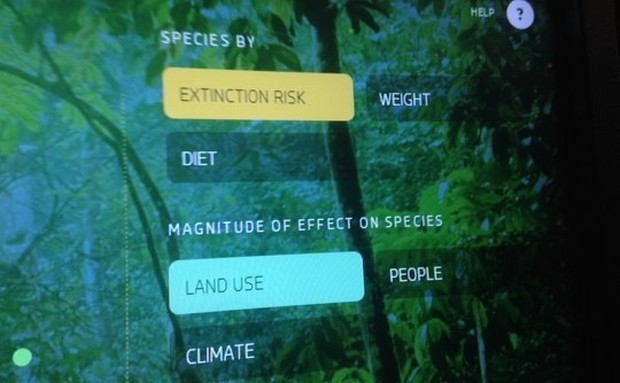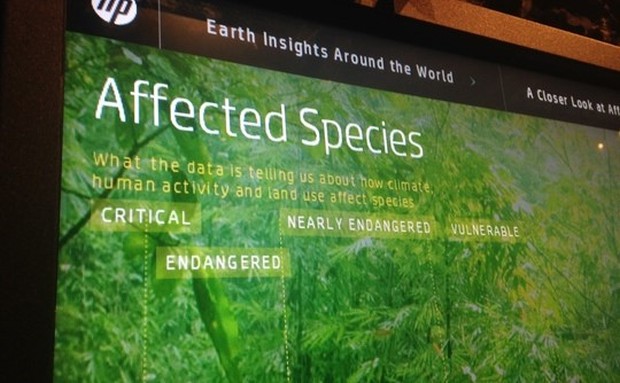Our depleting planet can have rays of hope when advanced technological systems like HP’s Earth Insights gain momentum. Various species are being endangered all around the world due to several reasons which include deforestation, climatic changes, and man’s desire for animal skin. Conservation International (CI) is the team of scientists and other co-interest people, whose mission is to protect biodiversity, monitors the health of plant species in tropical forests. HP partnered with CI to create “Earth Insights”.
Scientists told team HP that their biggest challenge was collecting, managing and analyzing the biodiversity and climate data captured across four continents.
HP used its product on analysis platform to meet the demands of the scientists. With this solution developed using Vertica Analytics Platform, data captured by remotely located cameras (which is roughly millions of photos over a few years at the 16 sites) is analysed nine times faster and much more accurate.
What once took a team of scientists weeks, months or more to analyze can now be done by a single person in hours.
By processing the camera data, it can estimate species occupancy of a certain area. The data ranges from temperature, humidity and solar radiation, as well as thousands of photos taken by cameras that are triggered if an animal walks past. This information is loaded into the Earth Insights platform, which is hosted on HP servers and is accessible to scientists working for Conservation International across the world.

HP Insight has been a great tool and help in the field; the stats below taken from HP’s official site indicate the same:
- Of the 275 species being monitored, 60 species—or 22 percent—are either significantly decreasing in population or likely decreasing compared to baseline levels.
- Findings indicate 33 of the species being monitored—or 12 percent—have significantly decreased in numbers. Among these are: the sun bear and the wild boar found in Malaysia (Pasoh Forest Reserve), the agile mangabey found in the Republic of Congo (Nouabalé Ndoke), and the greater grison found in Ecuador (Yasuni).
- The population of the Western Gorilla, which lives in the Republic of Congo (Nouabalé Ndoke) and is considered a Critically Endangered species, is likely declining—approximately 10 percent from the 2009 baseline—according to new data.
- The following insectivores are likely declining: the moonrat and masked palm civet found in Malaysia (Pasoh Forest Reserve), the banded mongoose, four-toed elephant shrew and checkered elephant shrew found in Tanzania (Udzungwa), the northern tamandua found in Costa Rica (Volcàn Barva) and large tree shrew found in Indonesia (Bukit Barisan).
HP technology has allowed scientists to develop an early warning system for threatened species..

With HP playing its part collaboratively with Conservation International (CI) towards the betterment of our home planet, we are sure to see more and more organizations committing towards environmental welfare. Earth Insight is not the only such initiative, there are others associated with different goals like – bird habitat, ocean animals, polar bear, etc.
ALSO READ: Mobile Apps for a Better Planet
In our coming posts, we would write more on this.
Related News Also coming soon is this amazing feature documentary film by Conservation International, starring Reese Witherspoon, Liam Neeson, Julia Roberts, Harrison Ford, Kevin Spacey, Edward Norton, Penélope Cruz, Robert Redford, Ian Somerhalder and Lupita Nyong’o. All coming together to give nature a voice.
-end-


































